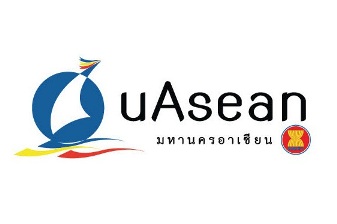Report on plight of political prisoners nearly complete
Myanmar Eleven May 25, 2015 1:00 am
#block_media{
position:relative;
display:block;
clear:both;
}
#tab_photo,#tab_video{
display:inline-block;
width:60px;
height:auto;
padding:3px;
position:absolute;
top:-25px;
left:500px;
text-align:center;
background-color:#ccc;
color:#000;
cursor:pointer;
z-index:0;
}
@-moz-document url-prefix() {
#tab_photo,#tab_video{
top:-26px;
}
}
#tab_video{
left:564px;
}
#block_media .tab_media_active{
background-color:#0c3e6f;
color:#fff;
}
#slides_box,.box-vdo-top{
z-index:600;
}
The Assistance Association for Political Prisoners (AAPP) is going to finish research about the lives of 1,000 political prisoners currently in custody, said Aung Myo Kyaw from the organisation.
The AAPP started preparing the list of political prisoners in 2014 together with the Former Political Prisoners Society. Currently, the AAPP has collected about 3,000 political prisoners' data. On February 23, the AAPP released an initial report about the 1,000 political prisoners' lives.
Aung Myo Kyaw said: "It will take another three months to finish the research. We have collected details about 3,000 political prisoners and we will highlight 1,000 of them."
The initial report released in February said the government's lack of assistance to political prisoners harmed their health, their families and affected the country's democratic transition.
It said that many political prisoners were released after the 2011 democratic reforms and it was an important task to take care of former prisoners to allow them to return to the community.
Journalists and villagers have been detained for opposing the government rules.
They include Myanmar Post chief editor Than Htike Thu and deputy San Moe Tun, as well as the journalists of Unity Weekly and the weekly journal's CEO. The weekly is no longer publishing as Unity’s CEO and reporters are in prison.
Than Htike Thu and San Moe Tun were imprisoned for two months for defaming the army and released last week after serving their full jail term.
Than Htike Thu said: "I don't hate the man who informed on us, the plaintiff, Colonel Thein Zaw, or the judge who gave us the prison sentence. I can understand it all. It is obvious that the government influences the judiciary. We applied for an appeal but were refused.
"We need to stop the executive from influencing the judiciary in order to promote the democratic transition. I'm glad that I have seen how the executive influences the judiciary."
He added that he was only 50 per cent happy because other journalists were still in prison or on trial. He called for solidarity within the media to expose executive pressure on the judiciary.
San Moe Tun said: "Under President Thein Sein's administration there was initially a liberalisation. However, the government is now suppressing the students, public, journalists and monks, as we get closer to the general election. They are removing those whom they loathe such as journalists, students and monks."
Section 5(J) under the 1950 Emergency Provisions Act was also frequently used against activists. It empowers the government to "prosecute anyone who affects the morality or conduct of the public in a way that could undermine the security of the union or undermine law and order".
Bidding to remove the clause, Lower House National League for Democracy (NLD) MP Win Myint failed. In a voting last week, his bid was supported by 50 MPs but opposed by 265. Deputy Minister of Home Affairs Brigadier General Kyaw Zan Myint argued against the change.
Win Myint said that there was no place for such controls in a country transitioning to democracy. The act was used to suppress democratic activists and citizens despite the lack of an emergency in the country.
Phyo Min Thein MP from the NLD said: "It is a notorious law in our country. People are afraid of hearing of Section 5(J). It was scary when the authorities knocked on our doors then took our sons and daughters away…The law gives too much power to the executive branch."
"Since the country is searching for national reconciliation, such laws should be repealed," said the politician who was arrested under the clause while being a student.
36 Viewed
googletag.display('div-gpt-ad-1407393128989-0'); var switchTo5x=false; stLight.options({publisher:'6d3040a3-8e61-4630-98b5-3f5875b38d3e'}); Latest stories in this category


Aung Myo Kyaw said: "It will take another three months to finish the research. We have collected details about 3,000 political prisoners and we will highlight 1,000 of them."
The initial report released in February said the government's lack of assistance to political prisoners harmed their health, their families and affected the country's democratic transition.
It said that many political prisoners were released after the 2011 democratic reforms and it was an important task to take care of former prisoners to allow them to return to the community.
Journalists and villagers have been detained for opposing the government rules.
They include Myanmar Post chief editor Than Htike Thu and deputy San Moe Tun, as well as the journalists of Unity Weekly and the weekly journal's CEO. The weekly is no longer publishing as Unity’s CEO and reporters are in prison.
Than Htike Thu and San Moe Tun were imprisoned for two months for defaming the army and released last week after serving their full jail term.
Than Htike Thu said: "I don't hate the man who informed on us, the plaintiff, Colonel Thein Zaw, or the judge who gave us the prison sentence. I can understand it all. It is obvious that the government influences the judiciary. We applied for an appeal but were refused.
"We need to stop the executive from influencing the judiciary in order to promote the democratic transition. I'm glad that I have seen how the executive influences the judiciary."
He added that he was only 50 per cent happy because other journalists were still in prison or on trial. He called for solidarity within the media to expose executive pressure on the judiciary.
San Moe Tun said: "Under President Thein Sein's administration there was initially a liberalisation. However, the government is now suppressing the students, public, journalists and monks, as we get closer to the general election. They are removing those whom they loathe such as journalists, students and monks."
Section 5(J) under the 1950 Emergency Provisions Act was also frequently used against activists. It empowers the government to "prosecute anyone who affects the morality or conduct of the public in a way that could undermine the security of the union or undermine law and order".
Bidding to remove the clause, Lower House National League for Democracy (NLD) MP Win Myint failed. In a voting last week, his bid was supported by 50 MPs but opposed by 265. Deputy Minister of Home Affairs Brigadier General Kyaw Zan Myint argued against the change.
Win Myint said that there was no place for such controls in a country transitioning to democracy. The act was used to suppress democratic activists and citizens despite the lack of an emergency in the country.
Phyo Min Thein MP from the NLD said: "It is a notorious law in our country. People are afraid of hearing of Section 5(J). It was scary when the authorities knocked on our doors then took our sons and daughters away…The law gives too much power to the executive branch."
"Since the country is searching for national reconciliation, such laws should be repealed," said the politician who was arrested under the clause while being a student.
36 Viewed
googletag.display('div-gpt-ad-1407393128989-0'); var switchTo5x=false; stLight.options({publisher:'6d3040a3-8e61-4630-98b5-3f5875b38d3e'}); Latest stories in this category
- Thanakha: Scent of a nation
- Since ancient times, Myanmar people have been..
- Political dialogue may be initiated before..
- Parliament to vet 137 bills

- Thaksin wants strong support base before contemplating..
- FUGITIVE former prime minister Thaksin Shinawatra..
- May 22 coup pre-planned or provoked by the..
- Open-sky policy must continue, say airlines



เครดิตและบทความเรื่องอื่นๆของ nation ดูทั้งหมด
2287
views
Credit : nation
News


